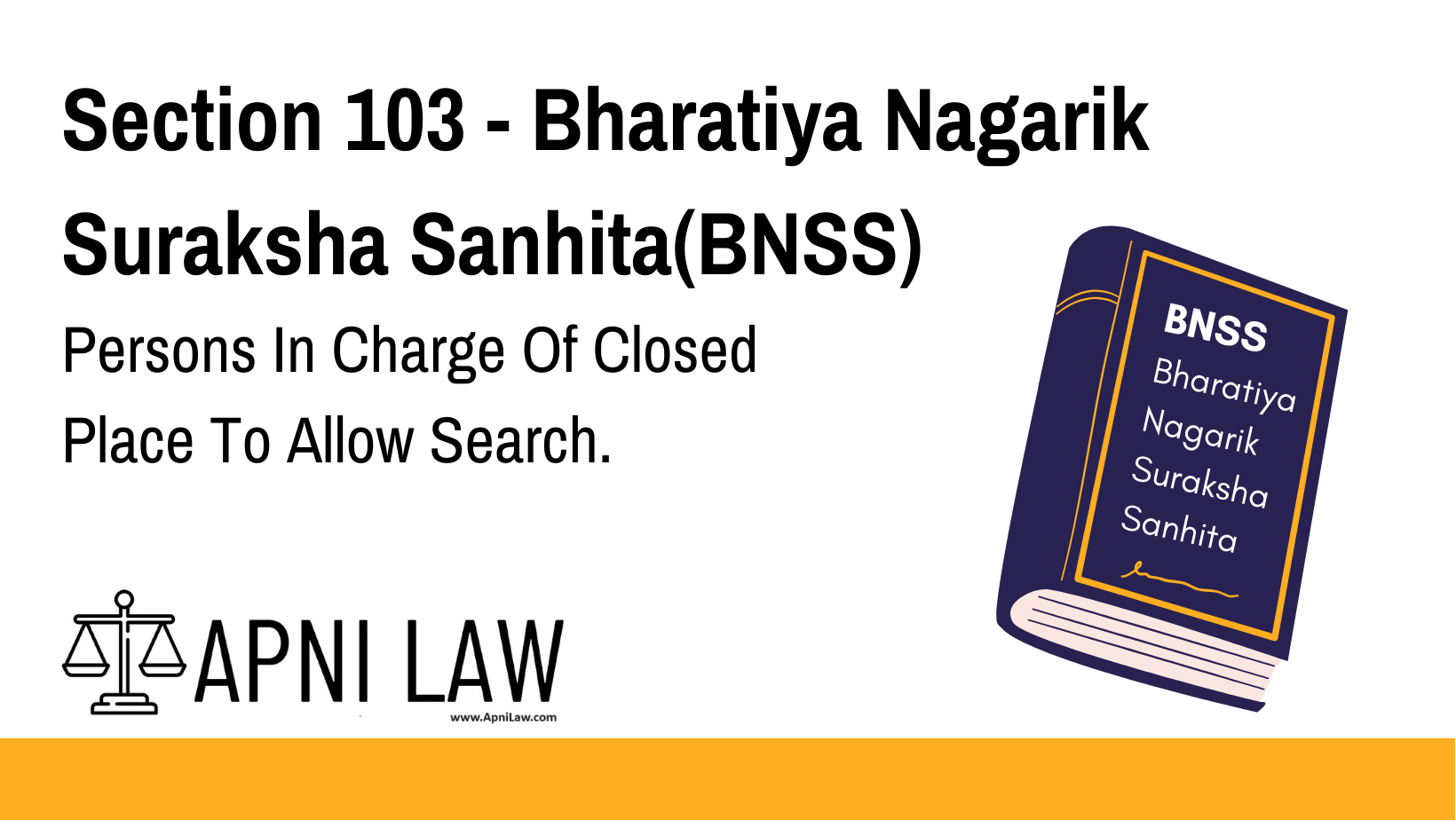Code:
(1) Whenever any place liable to search or inspection under this Chapter is
closed, any person residing in, or being in charge of, such place, shall, on demand of the
officer or other person executing the warrant, and on production of the warrant, allow him
free ingress thereto, and afford all reasonable facilities for a search therein.
(2) If ingress into such place cannot be so obtained, the officer or other person
executing the warrant may proceed in the manner provided by sub-section (2) of section 44.
(3) Where any person in or about such place is reasonably suspected of concealing
about his person any article for which search should be made, such person may be searched
and if such person is a woman, the search shall be made by another woman with strict
regard to decency.
(4) Before making a search under this Chapter, the officer or other person about to
make it shall call upon two or more independent and respectable inhabitants of the locality
in which the place to be searched is situate or of any other locality if no such inhabitant of
the said locality is available or is willing to be a witness to the search, to attend and witness
the search and may issue an order in writing to them or any of them so to do.
(5) The search shall be made in their presence, and a list of all things seized in the
course of such search and of the places in which they are respectively found shall be prepared by such officer or other person and signed by such witnesses; but no person
witnessing a search under this section shall be required to attend the Court as a witness of
the search unless specially summoned by it.
(6) The occupant of the place searched, or some person in his behalf, shall, in every
instance, be permitted to attend during the search, and a copy of the list prepared under this
section, signed by the said witnesses, shall be delivered to such occupant or person.
(7) When any person is searched under sub-section (3), a list of all things taken
possession of shall be prepared, and a copy thereof shall be delivered to such person.
(8) Any person who, without reasonable cause, refuses or neglects to attend and
witness a search under this section, when called upon to do so by an order in writing
delivered or tendered to him, shall be deemed to have committed an offence under
section 222 of the Bharatiya Nyaya Sanhita, 2023.
Explanation
Section 103 outlines the detailed procedure for conducting a search of a closed place and the necessary conditions that must be met to ensure the search is conducted lawfully and with due respect for individuals’ rights. It emphasizes the importance of transparency in the search process by requiring independent witnesses and a clear record of seized items.
Key Provisions:
- Access to Closed Places: If a place is closed, the person in charge must allow access upon the officer’s request.
- Search of Persons: If a person is suspected of hiding something, they can be searched, and if the person is a woman, the search must be conducted by a woman in a manner that respects decency.
- Witnesses: Before conducting a search, officers must call upon independent witnesses to be present. The search must be conducted in their presence, and a detailed list of seized items must be recorded.
- Obligations of the Occupant: The person whose place is being searched, or their representative, must be present during the search. They must also be provided with a copy of the list of seized items.
- Failure to Attend: If a person refuses to witness the search without a valid reason, they may face criminal consequences under Section 222 of the BNSS.
Illustration
Example 1: Search of a Closed Premise
A police officer arrives at a house that is locked and seeks permission from the house’s caretaker to conduct a search. After showing the search warrant, the caretaker allows the officer to enter and the search is conducted following all due procedures.
Example 2: Search of a Suspected Individual
During the search of a house, a woman is reasonably suspected of hiding contraband. She is searched by a female officer, and a list of the seized items is documented and given to her afterward.
Common Questions and Answers
1. What happens if a person refuses to allow access to a closed place for a search?
- Answer: If access cannot be obtained, the officer can proceed according to the method outlined in Section 44(2).
2. Who must witness a search under Section 103?
- Answer: The officer must call upon two or more independent and respectable inhabitants of the locality or another locality if local witnesses are unavailable or unwilling.
3. Can a woman be searched by a male officer?
- Answer: No, if the person being searched is a woman, the search must be conducted by another woman, in accordance with the principle of decency.
4. What if someone refuses to witness a search when ordered to do so?
- Answer: A person who refuses or neglects to witness a search, without reasonable cause, may be considered to have committed an offense under Section 222 of the BNSS.
Conclusion
Section 103 of the BNSS ensures that searches are conducted lawfully, with respect to the rights of individuals and in the presence of credible witnesses. It also imposes penalties for those who refuse to comply with the lawful process of witnessing a search.








